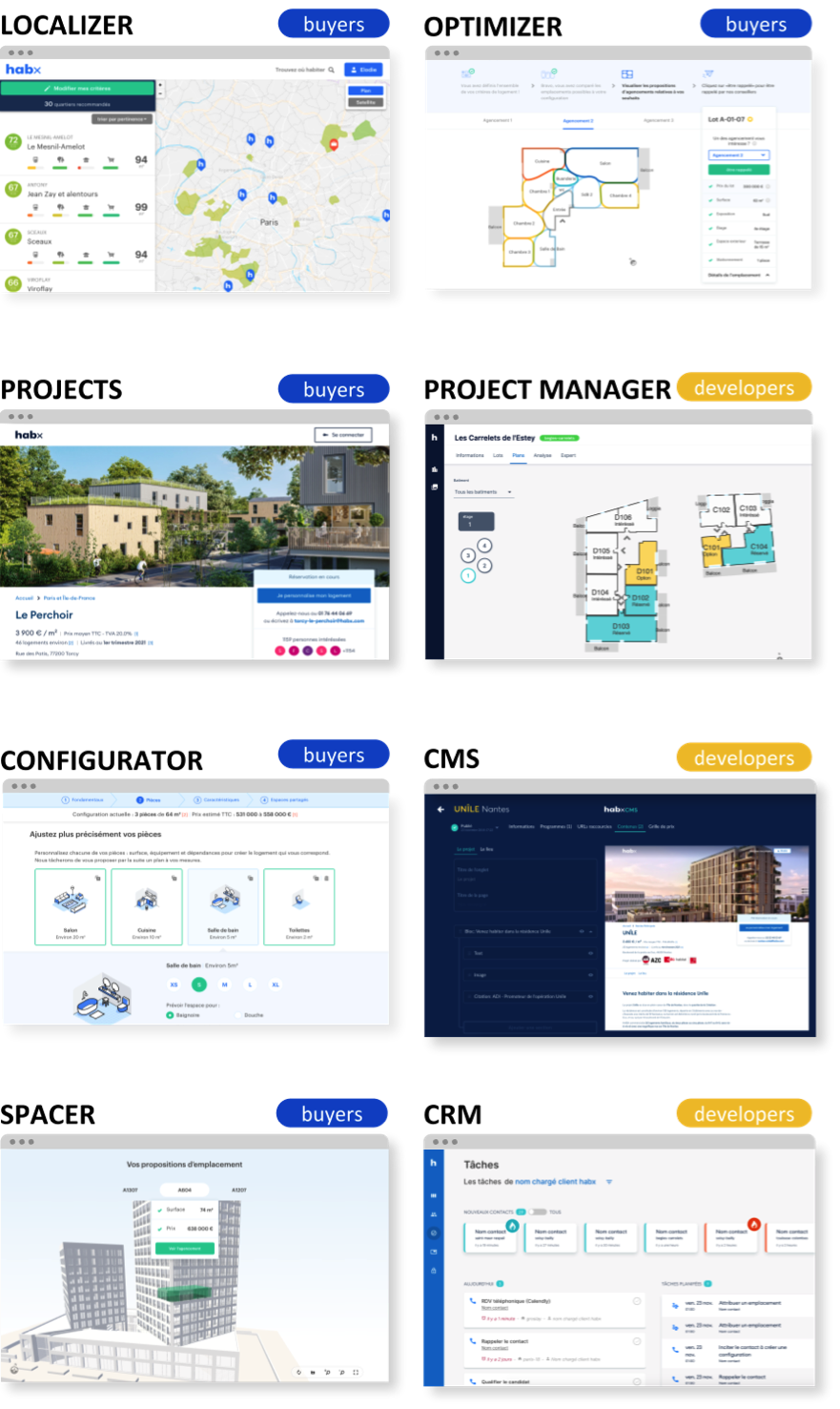
AI Dedicated to Desirable and Affordable Housing
juin 4, 2019 — The Big Picture
By 2050, the world’s urban population is expected to nearly double. To account for this increase, an estimated 25 million new dwellings will need to be built every year for the next 30 years. Housing the world’s population is quickly becoming one of humanity’s most pressing problems.
And a home is far more than a surface people own or rent. It is a place that is part of one’s identity, around which you build your life. Yet, in 2019, despite our ability to personalize almost all consumer goods, from shoes to cars, supply in the primary housing market remains standardized and expensive, causing frustration and disappointment.
Listen to the needs of everyone to create places of life that meet their desires with our technologies and architects who design the house of their dreams.
To meet this challenge, real estate development will have to solve issues related to productivity and rapidity of execution.
Residential real estate development is still a cumbersome process that has failed to improve over the last three decades. During this time frame in Europe, annual productivity growth has been worrisome (below 1.7%), making it one of the least efficient sectors in the economy. This is a daunting problem for society and a huge market inefficiency, especially in the context of its weight in the global economy: more than $1 trillion are spent each year on new housing purchases around the world.
Due to a lack of automated processes, residential real estate development is slow, risky and error prone, making the supply of newly built apartments expensive, standardized and scarce. Moreover, selling standardized housing takes time and requires important marketing spending and yet, in France for example, 72 percent of housings do not meet the inhabitants’ wishes.
In a nutshell, real estate developers build and sell housing much like they did 50 years ago.
AI and data are key to meeting these challenges, by improving construction efficiency and reducing costs.
Habx, an award-winning French Proptech startup launched in 2017 was created to tackle these issues. They introduced the first new build home configurator, through the use of Big Data and AI. Thanks to its technology and through its digital platform, habx puts future buyers at the heart of the building design process. Habx gives them the opportunity to configure their ideal housing and choose between several layouts suggested in real time before buying.
Through digitization and automation algorithms, habx enables the real estate industry to shift from a “made-to-forecast” to a “made-to-order” process. Instead of designing ab initio a static building and then searching for customers interested in the offer, habx’s innovative breakthrough technology enables developers to design and sell custom apartments on the fly, directly conceived with the wishes of future buyers.
By reversing the standard paradigm in which buyer’s input comes last, habx helps property developers reduce their commercialization costs by up to 60 percent while increasing their pre-sale monthly rate by 60 percent.
More importantly, this “crowd-building” approach lowers prices by up to 15 percent on average, leading to more affordable housing for all.
Data & AI can help the real estate industry build faster and better by helping inhabitants live in housing that meets their expectations. And all at a lower price.
